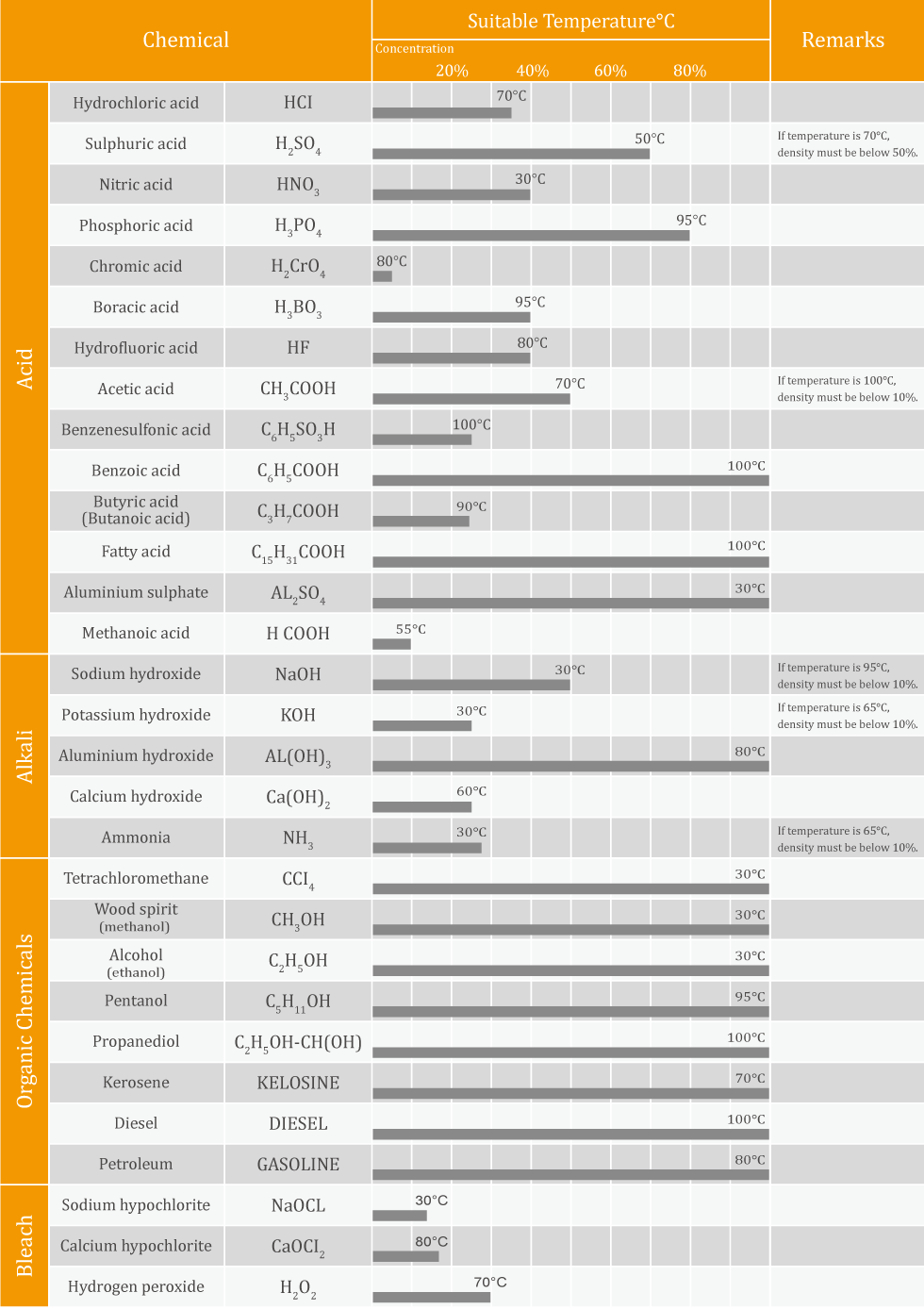Vinyl esters also use peroxides e g.
Vinyl ester resin chemical resistance chart.
In the chart please contact aco.
They are very resistant to chemical attack by chlorine and bleach environments.
Epoxy novolac vinyl ester group 72.
Derakane 470 series resins are epoxy novolac based vinyl ester resins designed to provide exceptional thermal and chemical resistance properties.
It is the most resistant resin in our portfolio against chlorine bleach and hot wet flue gas environments.
Vinyl ester or vinylester is a resin produced by the esterification of epoxy resin with unsaturated monocarboxylic acid.
Essentially they comprise a base of polyester resin strengthened with epoxy molecules in the backbone of the molecular chain.
Vinyl ester group 71.
Vinyl esters have enhanced mechanical properties compared to polyesters with physical strength better impact and thermal shock resistance.
Derakane 8084 resin is an elastomer modified bisphenol a epoxy vinyl ester resin that offers very high toughness impact and.
Vinyl ester standard vinyl ester resins offer excellent resistance to acids alkalis and oxidizing.
Derakane and derakane momentum 510a c resins are brominated epoxy vinyl ester resins that offer a high degree of fire retardance1.
Selecting a resin for the corrosion barrier 68.
Some swelling and a small reduction in mechanical likely.
Rubber modified vinyl ester group 72.
Class i astm e84 without antimony additives.
Their bromine content makes them tougher and more fatigue resistant than standard epoxy vinyl ester resins.
Chemical resistance material coupons are available for final determination of chemical resistance.
Process temperature 68.
Epoxy chemical resistance chemical resistance of epoxy to common products as acetic acid alcohol diesel oil and more fiberglass pipes and temperature limits temperature ranges for fiberglass epoxy furan phenolic polyester and vinyl ester pipes.
In assessing a resin for a particular environment factors other than maximum.
Superior thermal properties.
Negligible effect on mechanical properties.
They offer high resistance to solvents acids and oxidizing substances such as chlorine.
B slight attack by absorption.
They also offer high retention of strength and toughness at elevated.
Mechanical forces 69.
Vinyl ester resins are produced by the reaction esterification between an epoxy resin and an unsaturated monocarboxylic acid.
Derakane 510n resin is brominated epoxy novolac vinyl ester resin that offers a high degree of fire retardance1.
Improved resistance to hydrocarbon solvents and oxidizing media.
A no attack possibly slight absorption.
Hetron fr998 35 flame retardant epoxy vinyl ester resin.
Selecting a resin for the structural wall 69.

